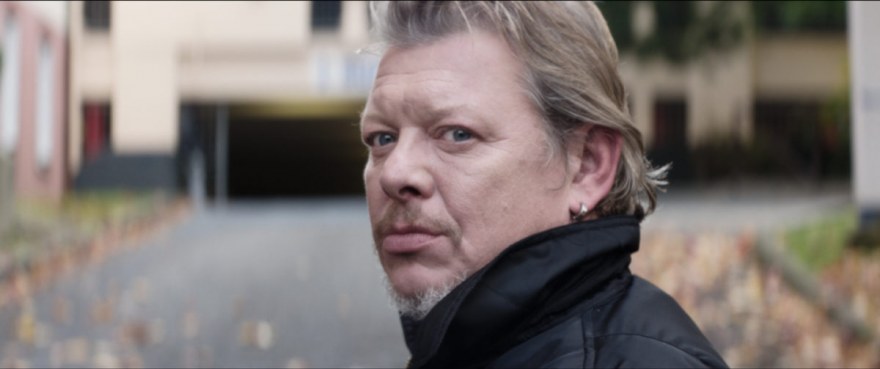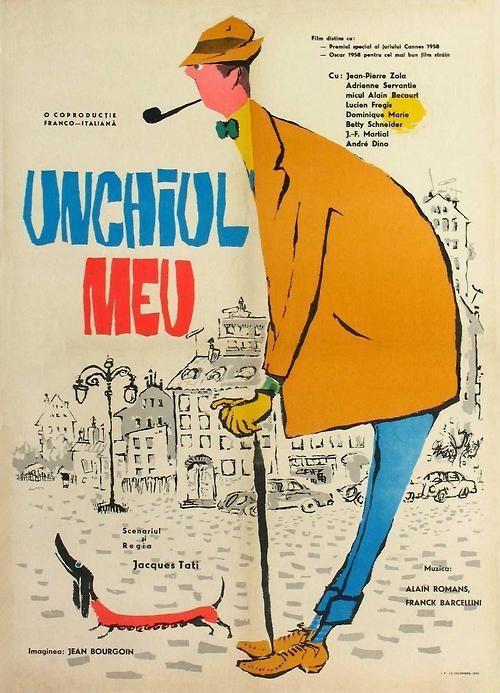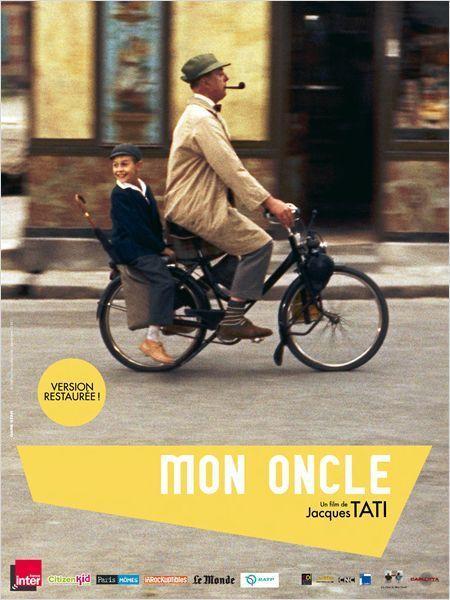Lunch with Maître-chien
Interview with Jean-Alain Laban, director of Maître-chien [Underdog]
How did you come up with the idea of using a supermarket security guard as your main character?
You might be a little disappointed when I tell you that I was not “inspired” by a supermarket security guard when I was doing my shopping. It was a process of elimination.
I wanted to make a genre film, specifically a vigilante film. Now, most of the ones out there, which are mostly American, used a police officer. Or else a former soldier. So a supermarket guard had the advantage of evoking security, of “seeing it as his duty” to represent justice. And I mean “seeing it as his duty” since Didier, my character, abundantly oversteps his prerogative. He makes it his personal business to settle scores with the neighborhood dealers, even though for him the criminal element is only a distant threat. That makes him even more ambiguous.
How did you come up with the film’s opening scene?
By using a formula for the script. I needed to introduce both the characters and the intrigue in one minute. I came up with a meeting in a car, early morning, when the dog trainer is going to work, and the boss is going home. Two lifestyles clash. They square off and it’s a guarantee of an eventual confrontation. Especially since the dog trainer is humiliated by the boss: that element is essential. Trashing his pride means gearing him up to mete out – not justice, but his justice. Underdog, the English title of the film, captures that aspect. The guy who dreams of getting the upper hand.
Why did the guard have to have a dog? Was the animal a tool or did it add another dimension to the character?
I gave him a dog so that he could you use it to kill the dealers – which is more realistic for a French character who doesn’t have easy access to a whole arsenal of weapons, like American characters. I also felt that using a dog to kill was more original than simply whipping out a Magnum. Crueler also.
Did you have any rituals in mind for the film – among men, or between man and animal?
Some rituals were necessary to the story. Like using a device to control the dog’s attack instinct. Or the training scene where Didier gets him worked up before he sets him loose to go for the jugular. Other than that, I preferred letting Thierry Hancisse, who does a brilliant job playing Didier, form his own relationship with the animal. I think their bond comes through on screen.
.
.
In Maître-chien, your main character is both endearing and unbearable. How did you manage to script that duality?
Simply by showing his loneliness. Pity is what makes him seem endearing.
Did you conduct research on gangs in France in order to make the film?
I recommend reading Luc Bronner’s excellent investigation, La loi du ghetto [The Law of the Ghetto], which won the Albert-Londres Prize for journalism in 2007. He was a bit of “correspondent” for Le Monde in the French banlieues. I really mean “correspondent”, since all too often, we treat the banlieues as if they didn’t belong on our soil. We discuss their inhabitants as “foreigners” who have no relation to “us”.
But I also spent a lot of time in an open air drug market at a tower block in Paris by the Galliéni metro stop. On Friday evenings, two hundred clients bustled across a basketball court, with the dealers staying behind the railings to hand out their merchandise. I saw the assistant to a Deputy of the National Assembly there, who was coming to get his weekend baggy of weed. And of course I had to buy too, otherwise the dealers would have gotten suspicious. But since I don’t smoke, I made a bunch of my friends quite happy.
When I met the supermarket director who kindly agreed to lend us his establishment so we could film Maître-chien, he asked me how long I’d been investigating the neighborhood. But it was only the second time I’d been there. From his office window he showed me the local boss, the dealers and the spotters – all my characters were right there in front of me.
Do you think that human groups need to find adversaries for their own self-development?
In the Talmud, the devil doesn’t really exist. At least, he’s not a red fellow with a pitchfork waiting for you to trip up so he can roast you. The devil is “the adversary” that ever person has within himself. So, yes, by nature, we always build up ourselves through adversity.
Does taking up the reins mean you can end the ride?
If your question is about Didier, the dog trainer who “takes up the reins” (metes out justice himself) in order to “end the ride” (put an end to the dealers’ dealings), then the answer is no. Taking up the reins only means that you can change the tempo – from a gallop to a trot.
.
.
What do you think of medals given to soldiers for demonstrating bravery in combat?
I don’t claim to have an opinion on the medals that cost them so dearly. Some people are presumably very proud of them, others may never have dared open the box they’re in for fear of reawakening their memories. But people who are given medals sometimes go to extremes to get them.
Napoleon began work on what is today the Madeleine church, and which was initially meant to be called “The Temple of Glory”. He wanted to have the names of all Frenchmen who died in combat engraved on tablets of pure gold. So basically, he was saying, “Glory to Glory”. The French began to wonder about that logic. Manipulation lasted a long time.
Some veterans of the Vietnam War threw away their medals as a protest. And Harry Patch, the last survivor of World War One, who died at 111, wholeheartedly despised what he called an “organized slaughter”, despite the fact that they were trying to cover him in glory. I get the feeling that being acquainted with war makes you a pacifist. Those who aren’t are more easily persuaded that it’s a viable option.
Could your character receive one?
If he did want one, it would simply be for tracking down all the shopping carts that the small-time dealers stole from him.
Do you think short films are effective in questioning the meaning of “family” and of “macro” social units?
You can take three hours to say nothing or sum up the whole world in three minutes. Every method is effective if you know what you want to say.
.
Maître-chien is being shown in National Competition F9.










